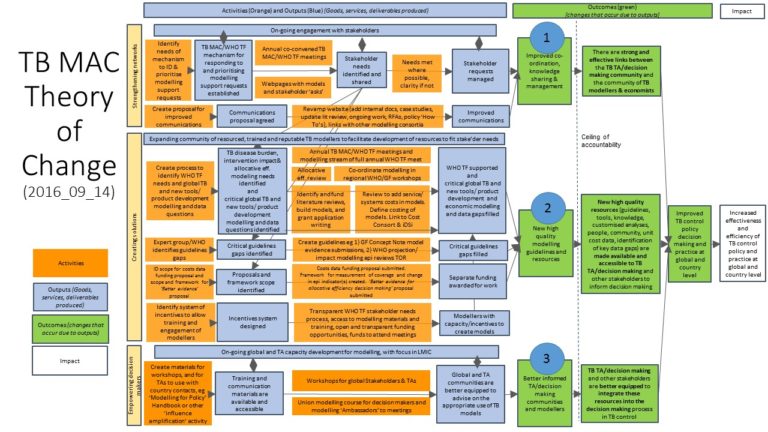- Improved co-ordination, knowledge sharing and management within TB community,
- New high quality modelling guidelines and resources, and
- Better informed Technical Assistance / decision making communities and modellers.
The complex natural history of TB, a range of possible interventions and great variation in epidemiological settings, mean that TB policy makers and donors face great uncertainty when prioritising TB control activities.
This uncertainty can be reduced and quantified, and the cost-effectiveness of different strategies compared, using mathematical modelling and other quantitative research activities. Several groups of modellers worked separately on issues such as the impact of new diagnostics, drugs and vaccines, but, although this work has contributed greatly to understanding the transmission and control of TB, the influence of the work was weakened by a lack of co-ordination, information-sharing, consensus building around key questions, prioritisation of data gaps and closer collaboration.
This led to critical research gaps and conflicting policy recommendations which served TB control poorly. Policy making and resource allocation must be based on scientific consensus derived from best analytic inputs, which draw on the best data and models in epidemiology, economics, demography and related disciplines.
TB MAC aims to increase the effectiveness and efficiency of TB control policy and practice at global and country level.

